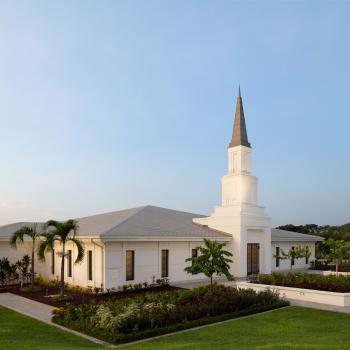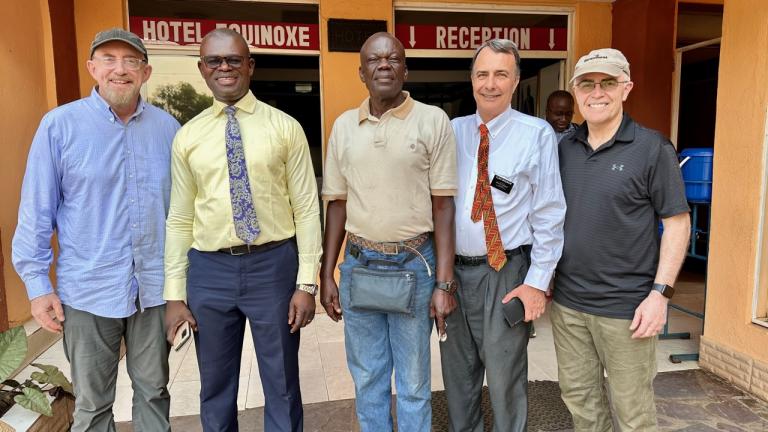
Another note, inspired by John W . Welch, et al., eds., Knowing Why: 137 Evidences That the Book of Mormon Is True (American Fork: Covenant Communications, 2017), and very relevant to the two Interpreter articles that I mentioned in my blog entry for last Friday:
“What Is It to Speak with the Tongue of Angels?” (143-145)
2 Nephi 32:2 seems to suggest an implicit doctrine of human deification in the Book of Mormon — a text from which, critics have alleged, the Nauvoo-period teaching of human exaltation is wholly absent.
To this, I would add 3 Nephi 28:10, where the Nephite disciples are promised that “ye shall be even as I am, and I am even as the Father; and the Father and I are one.”
In an analogy to the transitive property of equivalence known from mathematics — according to which, if a=b and b=c, it follows necessarily that a=c — if the disciples will be like the Son, and the Son is like the Father, the disciples will be like the Father.
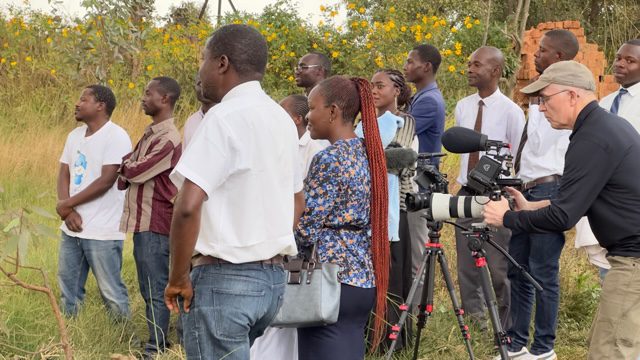
If one is in just the right mood, the Peterson Obsession Board can be a weirdly amusing place, as well as a psychologically fascinating one. In recent days, the PO Board has taken predictably negative note of the Interpreter Foundation’s current film project in the Democratic Republic of the Congo. (See the photographs accompanying this blog entry, as well as those featured here, here, and here.)
Jeff Bradshaw, who serves as the Interpreter Foundation’s director of special projects and on its board, conceived the idea of a film project devoted to the emergence of the Church of Jesus Christ of Latter-day Saints in the DR Congo. His fondness for the area and the stories of the Saints there comes naturally to him; between July 2016 and September 2019, he and his wife Kathleen served missions first in the Democratic Republic of Congo Kinshasa Mission office and then in the DR Congo Kinshasa Temple. He is back in the Congo at the moment, along with Russell Richins and James Jordan, who previously served as, among other things, respectively the producer and associate producer of the Interpreter Foundation projects Robert Cundick: A Sacred Service of Music, and Witnesses, and Undaunted: Witnesses of the Book of Mormon, as well as the Foundation’s short Insights videos.
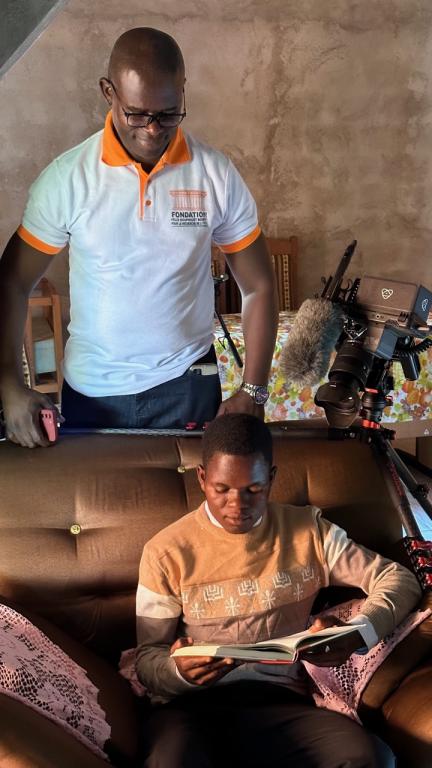
We have enough money behind the project to do the filming there in the Congo, but have not as yet raised the money for post-production (e.g., editing the raw footage, adding music, dubbing, and the like). There is no plan to take the films to theaters but, otherwise, we haven’t decided how to distribute them. Perhaps the most likely scenario is simply posting them online and making them available online, as we did with Robert Cundick: A Sacred Service of Music. We have never seen them as a source of revenue; instead, they represent the sort of thing for which we use whatever revenue we generate (which comes mostly in the form of donations). We think that the story and the stories of the Congolese Saints are worth telling, and worthy of the attention of other members of the Church.
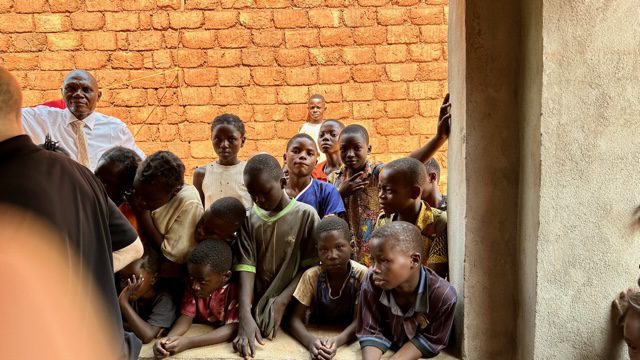
As seen from the perspective of the PO Board, though, our effort to make a series of short films about the Church and its members in the DR Congo is an “incredibly smelly” exercise in “colonialism.” It’s also “incredibly slimy.” We’re using people there as mere “props” in order to tell a faith-promoting story. (It’s their story, of course, so I’m at a bit of a loss to know how we would be able to tell their story without featuring any people in it.) Our project is mere “exploitation and priestcraft.” Our interviews of Congolese members are actually “interrogations” and “lectures.”
This is all “disturbing” to posters on the PO Board, “if not outright distasteful.” “Distasteful at best, and connivingly racist at worst.” Interpreter is on “exceptionally thin ice” with all this, because the Foundation is “exploiting” impoverished Africans for “propaganda” purposes. One commenter describes himself as feeling “unsettled” about this horrible affair, and “uncomfortable” about the fact that, unlike the denizens of the PO Board, the poor Congolese have no idea what kind of horrible people are now seeking to “exploit” them. (The verb to exploit shows up repeatedly in comments on our film project.)
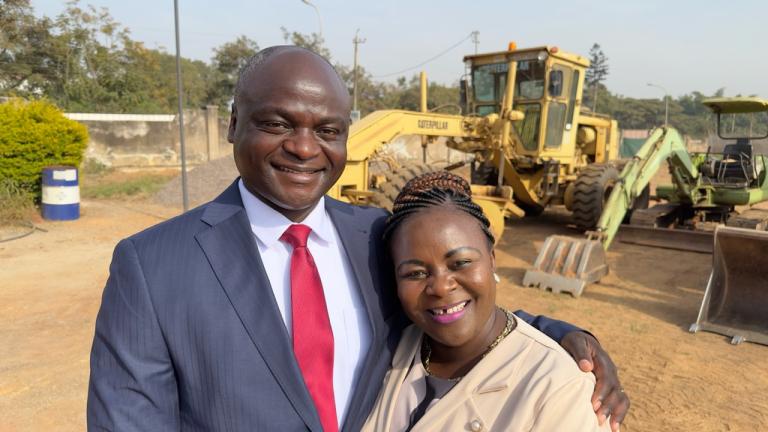
The photos that I’ve shared here, says my Malevolent Stalker, glorify “leering” white males. In fact, notes another member of the PO Board, there is a distinct lack of adult male Congolese in the photos that I’ve shared — except, I suppose, for the blind tailor pictured in one of them, the jeep driver Léon, and Elder Willy Sabwe Binene and Elder Ndalamba Ilunga of the Third Quorum of the Seventy, and others — indicating to folks on the PO Board that the Church is enjoying very little success among men in the Congo. (Apparently, they’re under the impression that the photos I’ve shared heretofore offer a representative demographic sample of Congolese Church membership — which, on that assumption, appears to be mostly made up of young children.)
Damnably, Interpreter’s visiting trio of filmmakers is building no homes for people in the Congo during its roughly three-week stint there, providing no meals or clean water, nor even teaching any Church classes. “The apologists aren’t even bothering to claim that they’re doing something good for the people of the DRC.” With regard to the film project, they’re just “fooling around with drones” and, well, using that drone and their other equipment to gather footage for a set of films.
And what is Interpreter’s end goal? It is to “exploit” Africans in order to secure lucrative donations for the Foundation and, ultimately, pour moi. And, of course, to pay for our forthcoming “anti-Community of Christ Brigham Young biopic.”
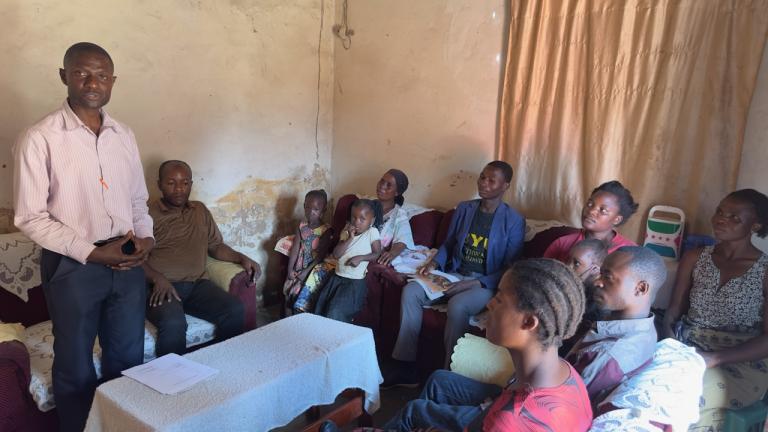
One commenter at the PO Board tried a couple of times to push gently back against some of these accusations. When viewed in the context of Africa’s historic experiences with such violent phenomena as Arab imperialism and subsequent European colonialism, he observed, Interpreter’s little film project seems “comparatively benign.” I thought that concession remarkably generous of him: Our greed-driven brutality will be fairly limited.
But the bottom line, most others agreed — and “bottom line” is very much the appropriate phrase here — is that both the Church and the Interpreter Foundation are “exploiting a foreign people for financial gain.” The Church’s “business model” for Africa is a form of “neocolonialism”: It is using BYU Pathway and the Perpetual Education Fund in order to secure cheap local education for Africans. And that sounds good, doesn’t it? Well, it isn’t! The Church wants them to gain educations so that they can eventually occupy elite positions in business and government in such a way that the Church will accumulate power and influence. (One respondent grudgingly allows that the Church might be benefiting the Congolese a little bit. But he immediately points out that Mussolini supposedly made the trains run on time, and that even the Ku Klux Klan may have done some good somewhere, sometime.) The Church is setting up “franchise locations” so that it can harvest tithes from Africa that it can then feed into Ensign Peak Advisors back in Utah — which seems to be the very “definition of colonialism.” This is “so the poor church doesn’t starve to death in Salt Lake City.” And the Interpreter Foundation is following the Church’s wicked model: Our movie effort is “a purely ‘extractive’ project,” in which we’re “rolling in, filming some videos, and then heading back to the US to try and use the footage to milk donations out of people.”
PO Board commenters grant that the Church has expressed disapproval of the customary African practice of dowries, which tend to oppress young Africans economically and to discourage marriage and family formation. But don’t get carried away! This is not because the Church suddenly cares about marriage and families. No, the real motivation is that President Nelson and his cronies dislike the idea that all that dowry money stays local. Instead, they want it to come to the Church via tithing. Sure, the Church might invest a few “pennies” in Africa in order to get things going there, as seed money, but what Church leaders want is a “sustainable investment.” And “success,” as viewed from Salt Lake City, means a flow of tithes to Utah and, most importantly, to Ensign Peak Advisors. It is, plainly, “imperialism.” And, likewise, “The Interpreter Foundation is using the Congolese people to make a quick buck.” My own time, in fact, is dedicated to scheming about how to “extract the maximum dollar amount from prospective donors.”
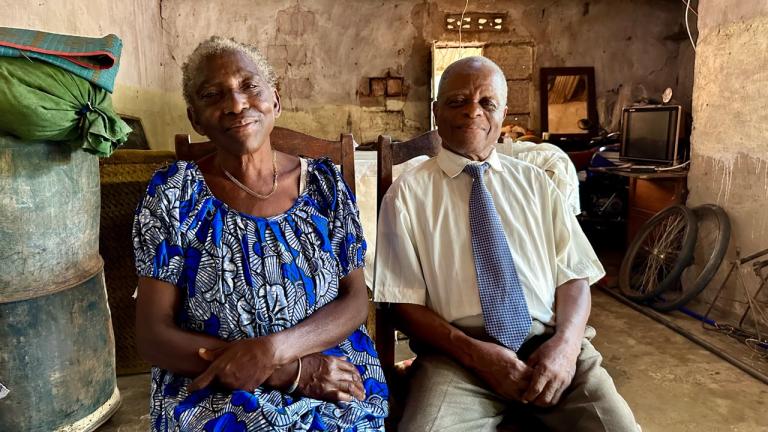
One side issue, though: P.O. Board members want to know why I’m not there in the Congo. Hmmm? Inquiring minds, and all that. But, in fact, minds on the PO Board already know: It’s not because I’m not a professional filmmaker and would be essentially useless there. It’s not because my spoken French is, at best, mediocre. (By contrast, in addition to his two French-speaking missions in the Congo, Jeff Bradshaw served his first mission as a young man in France and Belgium and, subsequently, lived twice with his family in France.) It’s because the rural Congo lacks the five-star accommodations and dining that I require. This is “about DCP gorging himself on beef pizza or washing down two orders of tikka masala with a diet soda.”
Bad enough, you think? Ah, but it’s far worse even than that. Why am I not in the Congo? “It is,” says my Malevolent Stalker, “impossible to escape the racial implications here.” (He’s probably quite right that it’s impossible for him, at least, not to detect “racial implications here.” After all, it’s what he does.) “Has DCP traveled to any predominantly Black country?” he asks. (The answer, by the way, is Yes. And I loved both trips. I wonder whether my Malevolent Stalker has spent any time in majority-Black countries.)
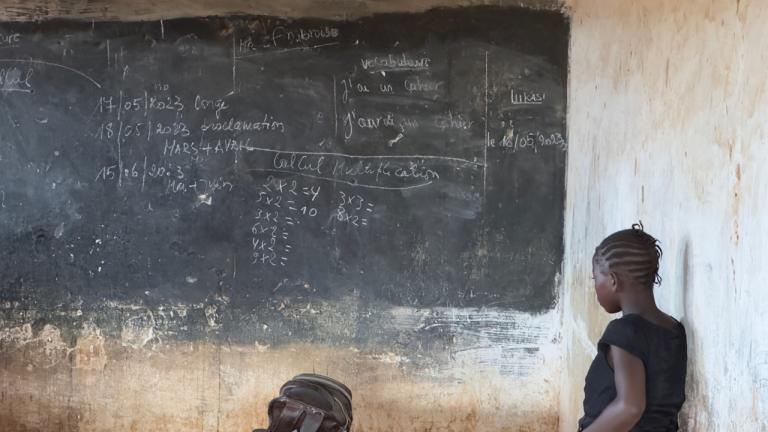
But here is the really pressing question: What will the Interpreter Foundation do with the massive profits that will somehow accrue from our short Congo-related videos? Will we donate even a tiny portion of our treasure hoard to the Congolese Latter-day Saints that we’re exploiting? “I think,” says one PO Board participant who has specialized for years in making up defamatory fictions about me, “the more likely outcome is that 100% of the money they make on this project will be used for DCP’s travel, meals and his anti-Community of Christ film, 6 Days in August.”
Of course, responds Kerry Shirts, another PO Board stalwart, “if DCP donates a laptop and a few pencils, and a few scratch pads of paper, it will be outdoing the donations of the church.”
Curious, I spent about fifteen seconds this afternoon in the relevant subfolder of the Christopher Hitchens Memorial “How Religion Poisons Everything” File™, and I came up with these four irrefutable confirmations of Mr. Shirts’s claim:
“Church Joins Forces with Catholic Relief Services and Caritas to Help Refugees in Eastern DR Congo” (2023)
There are probably other stories that I might have found, but these four should suffice for weighing the reliability of Mr. Shirts’s allegation.
Neither the Church of Jesus Christ of Latter-day Saints nor the Interpreter Foundation has ever viewed the Democratic Republic of the Congo as a lucrative source of wealth — except in the sense that its people are children of God and, in themselves, a treasure beyond price. The Church’s investments in regional temples and meetinghouses, its educational expenditures, and its humanitarian efforts are given in imitation of the Savior, “who went about doing good” (Acts 10:38), and not with any eye to financial payback. (Church leaders would be crazy, as well as evil, to seek to profit from the Congolese Latter-day Saints.) Similarly, the Interpreter Foundation wants to preserve the stories of the Saints in the Congo because we value them as our brothers and sisters. We have no plan to make a buck, whether quick or otherwise, by “exploiting” them, and we have no way to do so. The very accusation, I think, tells a great deal about those who level it against us.






